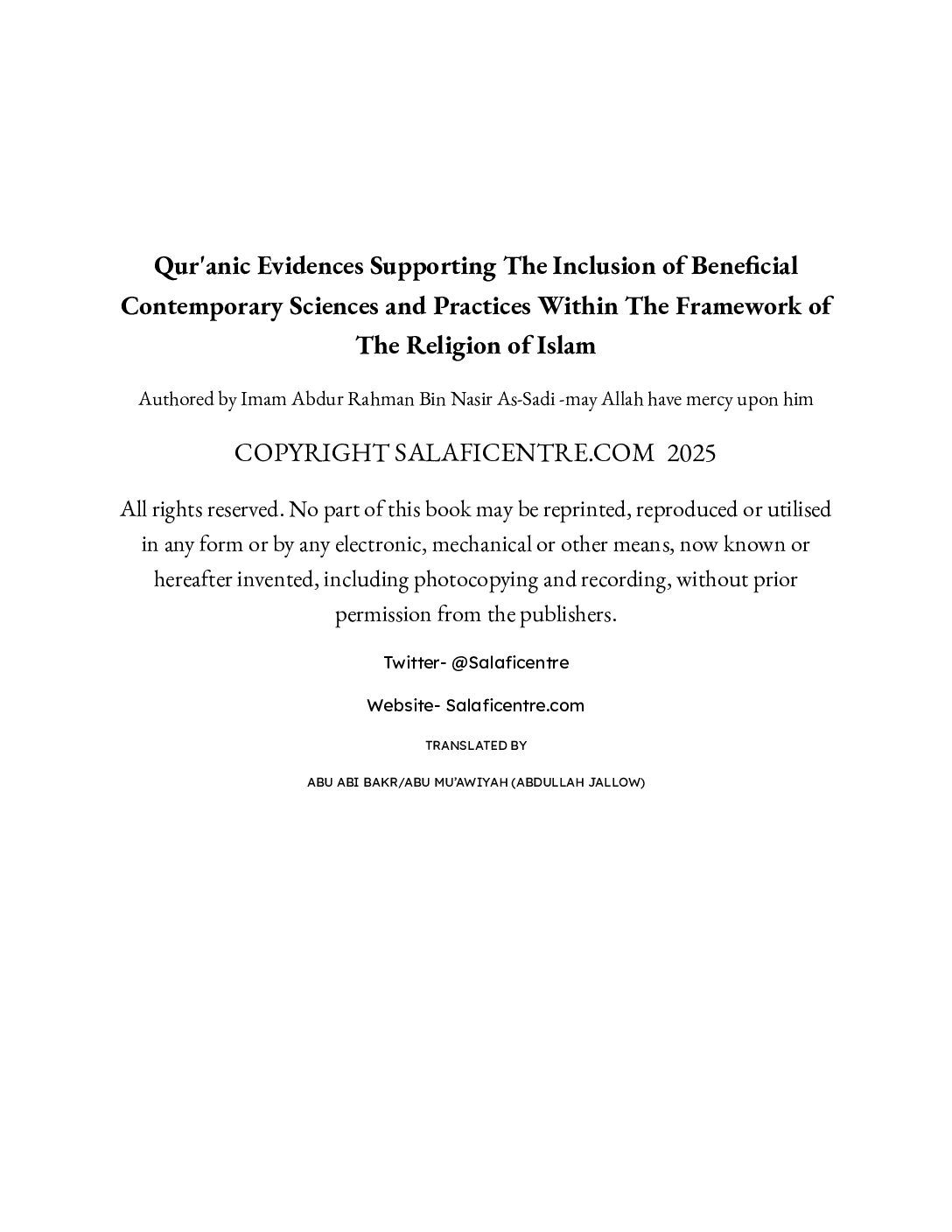Quranic Contemplations: Refutation of Deviant Beliefs In Al-Qadr (Predestination) – Shaykh Ṣālih al-Fawzān
Shaykh Ṣālih al-Fawzān (ḥafiẓahullāh) in explain of the following āyah said,
لِمَن شَآءَ مِنكُمۡ أَن يَتَقَدَّمَ أَوۡ يَتَأَخَّرَ (٣٧)
To any of you that chooses to go forward (by working righteous deeds), or to remain behind (by committing sins), (Al-Muddathir: 37)
This is an evidence that the servant possesses free will and choice; this is a refutation upon the Jabbāriyah, those who say that the servant has no free will or choice rather he is compelled in relation to his actions. They oppose the Mutazilah (1) (Qadariyyah – terms have become synonymous), for the Mutazilah go to extremes in affirming the will of mankind and negating the will of Allāh in contrast to the Jabbāriyah who go to extremes in affirming the will of Allāh and negating free will from mankind; therefore they are in opposite corners.
يَتَقَدَّمَ أَوۡ يَتَأَخَّرَ
Meaning, put forth righteous action or remain behind with disbelief and disobedience. (2) Because righteous actions lead to Paradise and to Allāh, as for actions of disbelief and disobedience then verily they distance a person from Paradise and from Allāh. This is a clear proof that mankind possesses free will and they put forth (righteous actions) and remain behind (in disbelief and sin) as they will. They perform righteous actions as they will and commit sins as they will without being compelled, as the Jabbāriyah claim.
However, when Allāh knows that his servant comes forth towards good, He gives him success. And when Allāh knows his servant turns away from good, he forsakes him, leaves him to himself and to his punishment.
The He (subhānahu wa ta’āla) said,
كُلُّ نَفۡسِۭ بِمَا كَسَبَتۡ رَهِينَةٌ (٣٨)
Every person is a pledge for what he has earned, (38)
Whoever puts forth (good) or remains (in disbelief and sin), all of them will have their deeds presented to them on Yawm al-Qiyāmah.
(1) http://www.aqidah.com/creed/articles/opvus-ibn-battah-al-ukbaree-d-387h-on-what-is-obligatory-to-believe-in-regarding-al-qadaa-wal-qadar.cfm
(2) As is recorded from Ibn ʿAbbās and Qatādah as reported in Tafsīr at-Tabari







